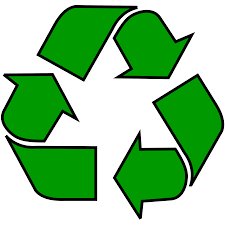On recycling, calm down. It’s complicated
Residents made quite a fuss this past week over rollout of Valley Stream’s new dual-stream recycling program, which alternates recycling weeks between paper products and glass, plastic and metal.
Chaos reigned as people put out the wrong recyclables on the wrong week, and on the particularly windy days last week, residents who mistakenly left cardboard out when they should not have had some of their paper goods strewn across their streets while away at work.
People quickly took to social media to disparage the village Sanitation Department, claiming that the new system was flawed. One person even called the department and threatened to assault its workers while in the field, according to multiple reports.
The village is not perfect in its operations, but by most accounts, it did what needed to be done to increase recycling efficiency, with a handful of good-faith efforts made to communicate to residents what the changes were.
The new schedule was mailed to every home in December in Valley Stream’s quarterly newsletter, explaining why the village was jumping to dual stream. Many residents likely threw the flier in the trash without reading it. That’s fair. The village would have done better to send out a dedicated mailer.
On Dec. 10, Sanitation Supervisor Brian Leavey and Deputy Treasurer David Sabatino held an informational session at Village Hall, during which they performed a deep dive into what would be changing and why. It was an honest and sober assessment of Valley Stream’s recycling program, and they spelled out the nuances of why many of the items that we believed were recyclable in the past no longer are.
Multiple news outlets have reported that China had for years purchased recyclables from the U.S., but started refusing to accept them in 2017. That sent shockwaves through the U.S. recycling industry. A municipality of nearly 40,000 residents, while relatively large for a village, is still just a village, and has little sway over such geopolitical undercurrents.
If anything, it’s the failure of federal and state governments to recognize that a for-profit recycling industry operates at the whims of commodity prices, and without the crutch that was China to make a profit, it now faces potential failure.
According to a 2016 report by Pew Charitable Trusts, under a rapidly expanding Chinese economy that was gobbling up raw materials, the country served as the proverbial rug under which American recycling firms could sweep their recyclables. Faced with a glut of resources and a cooling economy, China began to close its doors to recyclables before shutting them out entirely. Plastics, in particular, were hit hard, according to the same report, as rock-bottom oil prices made it cheaper to produce new plastics than to recycle used ones.
Since then, local municipalities, long accustomed to cheap recycling services, have been scrambling, and in some cases have closed their programs. Now, the states that do have a vested interest in maintaining recycling programs are faced with competing goals of encouraging as many residents as possible to recycle while also making the process as cheap as possible.
The accepted wisdom is that single-bin, or single-stream, recycling encourages more people to recycle because it’s more convenient, but the process of recycling mixed materials together requires more sorting equipment and risks cross-contamination. Newspapers, for example, are often rendered useless by stray food waste from cans and jars. The 2016 report states that local municipalities are unlikely to change this process because residents are used to single-stream recycling, and when they do change, they risk revolt by residents.
Valley Stream, however, has made the hard choice by switching to dual stream, which saves money for its recycling firm. With a federal government seemingly checked out on all environmental issues, New York needs to take a more activist approach on recycling. Until it does, Valley Stream’s approach is likely the best and only step it can take, other than not to recycle, which would be a terrible waste.

 48.0°,
Overcast
48.0°,
Overcast 




